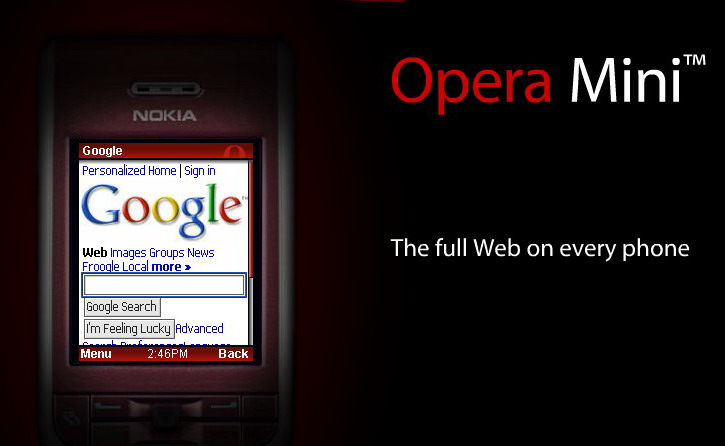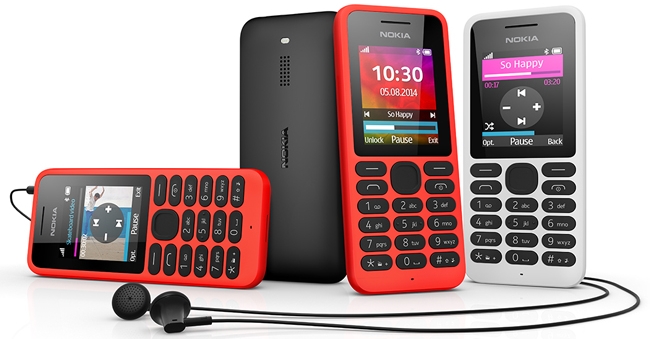Microsoft Throws In The Towel. Adopts Opera Mini As Default Browser For Nokia's Feature Phones
After many years of seeing Opera as a competitor in the browser space, Microsoft has signed a deal with the company to use its Opera Mini as the default browser for all of Nokia's feature phones.
Microsoft had a big wave of layoffs recently, with most of the cuts coming from Nokia's handset division, so it's likely that Microsoft also laid off most of the developers working on Nokia's feature phones, including those working on its in-house browser.
Microsoft doesn't want to invest much more than it has to in its feature phone line-up, but it will continue to support it for the time being in order to serve the large sub-$50 phone market.
It's clear that Microsoft's end goal is to have Nokia's entire lineup of phones use the Windows Phone OS, eventually. The only problem is that the hardware necessary to support Windows Phone hasn't gotten into the price range of the hardware that now runs Nokia's S40 or Asha.
Until that happens, Microsoft doesn't want to build Internet Explorer for these phones, or even keep supporting Nokia's custom browser, Xpress. Instead it's now licensing Opera Mini and completely outsourcing the browser to Opera. It seems Microsoft is in such a hurry to move its low-end phones to Opera Mini that it's not even going to wait for new phones to come out with it. The Xpress browser will soon be replaced by Opera Mini on the older phones, too.
As expected, Opera couldn't be happier with this deal:
“This is a great opportunity to spread the benefits of Opera Mini to millions more consumers in our core markets. There are still massive numbers of people who have not moved to smartphones, but Opera Mini can provide them with an amazing browsing experience right now," said Lars Boilesen, CEO of Opera, in a statement.
Get Tom's Hardware's best news and in-depth reviews, straight to your inbox.
Opera Mini has been a great browser for low-end phones and in markets where data is not very affordable. The browser saves up to 90 percent of data by compressing all the traffic through Opera's own servers.
Opera may not be highly successful on the desktop or even on high-end smartphones, where Chrome and the built-in browsers dominate (respectively), but thanks to these feature phones it should still do well for the next few years. At the same time, Microsoft doesn't have to spend money developing a browser for a platform that's going to fade out eventually, so it looks like a win-win situation for both.
Follow us @tomshardware, on Facebook and on Google+.
Lucian Armasu is a Contributing Writer for Tom's Hardware US. He covers software news and the issues surrounding privacy and security.
-
therogerwilco Microsoft didn't throw in the towel, they inherited some crap Nokia made.Reply
They could definitely choose a better option than Opera though.. -
neblogai S40 aren't feature phones- symbian is not very user friendly, but definitely a smartphone OS. Could do 90% of what android or other current OS's do now- years before those where even invented.Reply -
alextheblue ReplyMicrosoft didn't throw in the towel, they inherited some crap Nokia made.
Such as? What's better than Opera Mini for non-smartphone devices that have very very low specs? Hint: Nothing.
They could definitely choose a better option than Opera though..
-
falchard Wow someone is really smart at Microsoft. First they decide Internet Explorer probably is not the best browser. Second they decide that Opera is the best browser. That really deserve an award.Reply -
Shin-san I thought this was for smartphones. It would probably cost way more to port over IE to that kind of UI than to just use something like Opera, especially for a phone that's not going to be sold for muchReply -
rdc85 The data compression by opera mini helps a lot, because of it most web displayed correctly/full instead of choppy web using built in/other browser (in area where data connection worse).Reply
This may not a problem in country with better internet access, but it helps in the one who don't...
but that was in past now the connection is better, I was kinda hoping opera could step up the game.. -
razor512 In terms of functionality, no one has been able to compete with opera in the feature phone area. While opera mini has 0 privacy as the reason why it runs so well is because it is using opera servers to offload a bunch of the processing load, and formats pages really well to fit those really tiny screens.Reply
Microsoft probably tried and failed to come up with anything better. (the reason why some of the better feature phones only need to be charged 1-2 times per week is because they are designed for low power. Call quality is the main focus, with other random features being extras based on what the SOC supports. -
damianrobertjones "Microsoft Throws In The Towel. "Reply
Flame bait. Terrible writing and shame on you!

